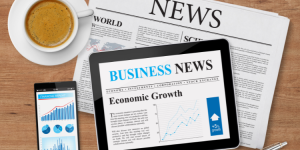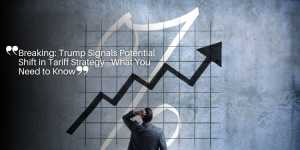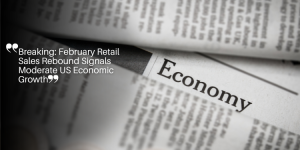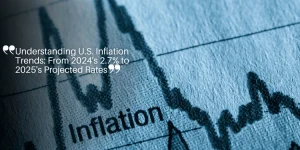Breaking news on inflation rates: what it means for you

Breaking news on inflation rates indicates rising prices are influencing consumer spending, investment decisions, and financial strategies, requiring careful assessment of economic trends for better financial planning.
Breaking news on inflation rates is shaking up the financial landscape, and understanding its implications is crucial. Have you wondered how these changes could impact your savings and purchases? This article dives into the latest insights that matter to you.
Current inflation trends and statistics
Understanding current inflation trends is essential for anyone wanting to navigate today’s economic landscape. In recent months, we have seen a significant rise in inflation, which can affect your daily expenses and savings.
Experts have pointed out several key factors driving inflation. One major element is supply chain disruptions caused by recent global events. These disruptions can lead to shortages of goods, driving prices up. Additionally, increased consumer demand as economies reopen contributes to this inflationary pressure.
Recent Inflation Statistics
According to the latest reports, inflation rates have reached levels not seen in decades. For instance, the Consumer Price Index (CPI) shows that prices for essential goods have surged. Here are some important statistics:
- The overall CPI increased by 7.9% over the past year.
- Food prices have risen by 8.6%, impacting household budgets.
- Energy prices have surged by 25%, creating further financial strain.
Impact on Consumers
The implications of these inflation trends are profound. People are starting to notice changes in their purchasing power. Everyday items are costing more, prompting many to adjust their spending habits. For example, families may opt for discounts or choose generic brands to manage their grocery bills more effectively.
Furthermore, rising inflation can affect interest rates. As prices increase, the Federal Reserve may decide to raise interest rates to contain inflation. This could mean higher borrowing costs for consumers, impacting everything from car loans to mortgages.
In conclusion, keeping an eye on current inflation trends is vital. As inflation continues to fluctuate, understanding its causes and effects will help you make informed financial decisions.

Effects of inflation on consumer spending
The effects of inflation on consumer spending are increasingly evident as prices rise. When inflation occurs, consumers often find themselves adjusting their budgets to cope with the changes. This shift in spending habits can have significant implications for the economy.
As prices climb, many households struggle to maintain their usual purchasing patterns. For example, they might start prioritizing essentials over luxuries. This means less spending on non-essential items like dining out or entertainment activities. People are more careful about what they buy, often seeking discounts or switching to cheaper brands.
Changes in Spending Priorities
Consumers are more than likely to focus their spending on basic needs. Some of the changes they may experience include the following:
- Increased spending on groceries as they seek the best prices.
- Less spending on luxury goods and services.
- Reduced travel as consumers cut back on non-essential expenses.
Psychological Impact
The psychological effects of inflation can also influence consumption patterns. When shoppers see prices rising, they might become anxious about their financial future. This uncertainty can lead to decreased consumer confidence, making people hesitant to spend money. As a result, they might hold back on larger purchases, such as cars or appliances, impacting overall market demand.
Moreover, inflation can lead to a sense of urgency among consumers. They may decide to purchase items sooner rather than later, fearing that prices will continue to rise. This behavior can create short-term spikes in demand, affecting both the supply chain and pricing strategies of businesses.
In conclusion, the effects of inflation on consumer spending can reshape the way people approach purchases. As inflation influences priorities and decision-making, it is crucial for consumers to adapt to these changes to manage their financial health effectively.
How inflation influences investment decisions
Understanding how inflation influences investment decisions is vital for anyone looking to grow their wealth. Inflation impacts various asset classes, and investors must adapt their strategies accordingly. As the purchasing power of money declines, investors often seek assets that can outpace inflation.
Investors typically look for investments that offer returns greater than the inflation rate. For example, real estate is often considered a hedge against inflation, as property values and rental income tend to increase over time. Similarly, commodities like gold can serve as a safe haven during inflationary periods.
Shifts in Asset Allocation
Inflation can also cause investors to change their asset allocation strategies. When inflation rises, many shift their focus toward:
- Stocks with strong pricing power, which can pass on costs to consumers.
- Infrastructure investments that tend to earn higher returns during inflation.
- Inflation-protected securities, like TIPS, that adjust with inflation.
The Role of Interest Rates
The relationship between inflation and interest rates is another critical factor influencing investments. As inflation increases, central banks often raise interest rates to cool the economy. Higher interest rates can lead to lower bond prices and affect equity valuations. Investors must consider these changes when making decisions.
Additionally, higher borrowing costs can affect companies’ profitability, particularly those that rely on loans for growth. As a result, some investors may favor sectors that are less impacted by interest rate hikes, such as utilities and consumer staples.
In conclusion, understanding how inflation influences investment decisions requires ongoing attention to market trends and policies. Adapting to these changes can help investors protect and grow their portfolios.
Future outlook for inflation rates
The future outlook for inflation rates is a topic of great interest and concern for economists and consumers alike. As we move forward, various factors will influence how inflation behaves, making it essential to pay attention to economic indicators.
Experts are predicting that inflation could continue to fluctuate in the coming years. Factors such as global supply chain disruptions, shifts in consumer demand, and changes in government policy will play significant roles. Understanding these elements will help us anticipate future trends.
Key Influencers on Inflation
Several factors are likely to impact inflation rates significantly:
- Supply chain recovery as economies adjust post-pandemic.
- Monetary policy adjustments by central banks as they respond to economic changes.
- Global events that can create uncertainty and impact prices, such as geopolitical tensions.
Consumer Behavior Trends
Consumer behavior will also affect the future of inflation. As people adapt to changing prices, their spending patterns may shift. For instance, a rise in demand for durable goods can drive prices up, while decreased discretionary spending can help stabilize inflation.
The impact of technology on prices is another consideration. Innovations may help reduce costs in some areas, potentially leading to lower inflation in specific sectors. Staying informed about these developments can provide valuable insights into what to expect.
As we look ahead, it remains crucial to monitor how these factors interact and shape the economic landscape. Awareness of the future outlook for inflation rates can help individuals and businesses make informed financial decisions.
In summary, staying informed about inflation rates is essential for making sound financial decisions. Inflation impacts consumer behavior, investment strategies, and overall economic health. By understanding its effects, individuals and businesses can better prepare for future changes. Adapting to inflation trends allows for more effective spending and investment, ensuring long-term financial stability. Keep an eye on key indicators and adjust your plans as needed to navigate the complexities of inflation.
FAQ – Frequently Asked Questions about Inflation Rates
What is inflation?
Inflation is the rate at which the general level of prices for goods and services rises, eroding purchasing power.
How does inflation affect consumer spending?
Inflation often leads consumers to adjust their spending habits by prioritizing essential items and reducing discretionary purchases.
What types of investments are good during inflation?
Real estate, commodities, and inflation-protected securities are commonly seen as good investments during inflationary periods.
What factors can influence future inflation rates?
Factors include supply chain disruptions, changes in consumer demand, government policies, and global events that affect the economy.







